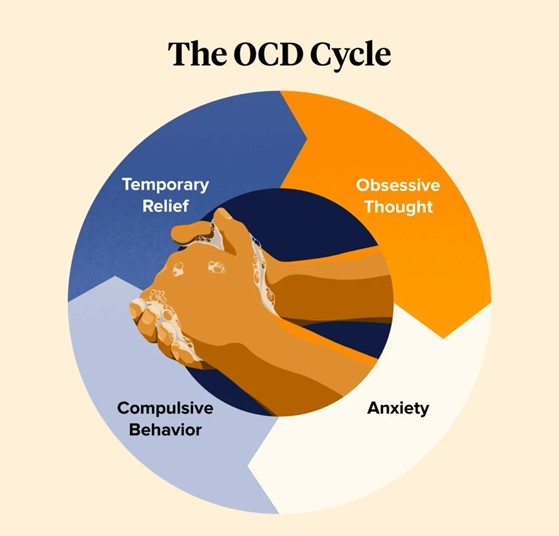The nurse is collecting data from a client with obsessive-compulsive disorder (OCD). Which of the following findings should the nurse expect? (Select all that apply.)
Irrational fear of certain objects
Difficulty relaxing
Unaware of compulsions
Rule-conscious behavior
Perfectionist behavior
Correct Answer : B,D,E
The client with OCD may experience difficulty relaxing and often feels tense, anxious, and irritable. They may engage in rule-conscious behavior and exhibit perfectionist tendencies, as well as experience compulsive behaviors. These behaviors may be time-consuming and interfere with daily activities.

Option A is incorrect because irrational fear of certain objects is more indicative of a phobia than OCD.
Option C is incorrect because clients with OCD are usually aware of their compulsions and may even try to resist them.
Reasons why the other options are not correct answers:
Option A: Irrational fear of certain objects is more indicative of a phobia than OCD.
Option C: Clients with OCD are usually aware of their compulsions and may even try to resist them.
Nursing Test Bank
Naxlex Comprehensive Predictor Exams
Related Questions
Correct Answer is C
Explanation
0745.. Regular insulin has an onset of action of 30 to 60 minutes, a peak effect of 2 to 4 hours, and a duration of action of 6 to 8 hours. Therefore, the patient should receive breakfast within 30 minutes of receiving the insulin injection to prevent hypoglycemia.
Choice A. 0720 is incorrect because it is too soon after the injection and the insulin may not have reached its onset of action yet.
Choice B. 0815 is incorrect because it is too late after the injection and the insulin may have reached its peak effect by then, increasing the risk of hypoglycemia.
Choice D. 0730. is incorrect because it is less than 30 minutes after the injection and the insulin may be approaching its peak effect.
Correct Answer is C
Explanation
"The client learns to change negative thoughts into positive statements." This demonstrates the effective use of cognitive reframing, which involves changing negative thoughts into positive self-talk. This strategy can help to reduce stress and improve coping skills.
Choice A, "The client imagines being in a quiet, relaxing environment," is not an example of cognitive reframing, but rather an example of visualization, which can also be useful in reducing stress.
Choice B, "The client trains his mind to relax by using deep inner resources," is not an example of cognitive reframing, but rather an example of relaxation training.
Choice D, "The client learns the source of his stress by writing down daily events," is not an example of cognitive reframing, but rather an example of stress management through self-reflection.
Whether you are a student looking to ace your exams or a practicing nurse seeking to enhance your expertise , our nursing education contents will empower you with the confidence and competence to make a difference in the lives of patients and become a respected leader in the healthcare field.
Visit Naxlex, invest in your future and unlock endless possibilities with our unparalleled nursing education contents today
Report Wrong Answer on the Current Question
Do you disagree with the answer? If yes, what is your expected answer? Explain.
Kindly be descriptive with the issue you are facing.
